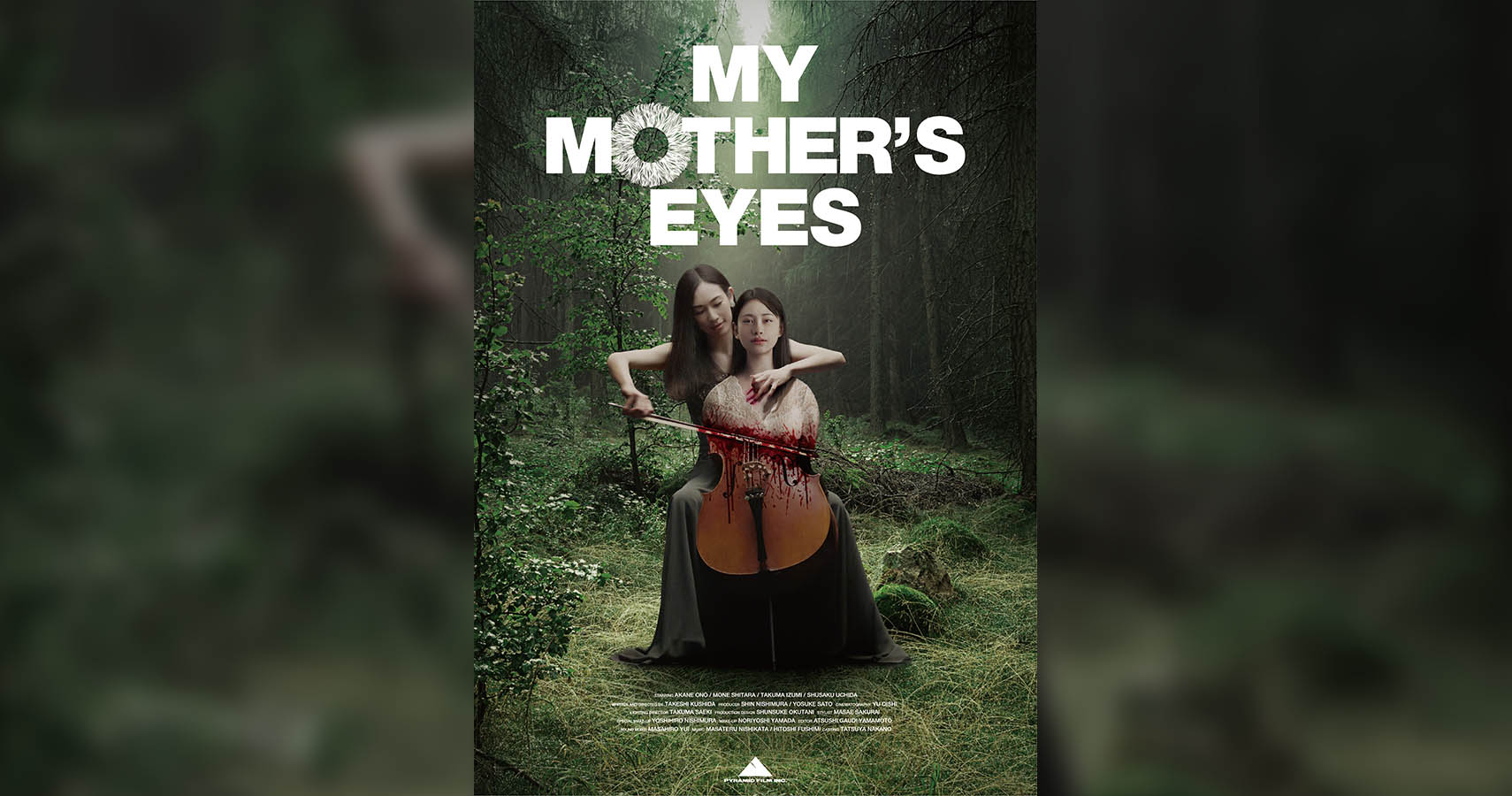

My Mother’s Eyes is a 2023 Japanese science fiction psychological thriller, written and directed by Takeshi Kushida. No stranger behind the camera, Kushida is also the creative mind behind the short films FLOW (2003), KANNNON (2004), Reincarnation (2008), I AM A CAMERA (2013), The Earth was Bluish (2015), and VOICE (2018), as well as the multi-award winning feature-length romantic drama Woman of the Photographs (2020).
Hitomi, a cello instructor and single mother, is asked by her daughter, Eri, to perform with her as a duet at her school concert. Upon their return home, the pair are involved in a major car collision that paralyzes Eri from the neck down and leaves Hitomi blind. In a fit of desperation, Hitomi accepts a secretive, highly experimental artificial eye in the form of a new contact lens device that restores her vision. As Eri slides further into depression, she becomes suicidal and contemplates euthanasia. Hitomi, desperate to help her child, combines this new technology with her daughter’s VR headset, allowing Eri to still experience the outside world from her hospital bed through her mother’s eyes.

Challenging the very concepts of perception, My Mother’s Eyes is a profound exploration of personal identity, the human psyche, the validity of reality, and the inherent ethical implications of scientific advancements. The philosophical argument that reality is only as real as we perceive it to be is analyzed in great detail, undoubtedly leaning towards the idea that any reality experienced by an individual holds a level of legitimacy—be it positive or negative. Anyone in a similar position to Eri, bound to the confines of a minuscule hospital room, would certainly be willing to abandon this harsh reality of limitation for a new one. However, as Hitomi becomes a vector for her daughter to continue her life, she slowly becomes trapped in a shell of her own body similar to Eri. Only able to watch as her actions are controlled by another, she looses her identity in the process.
The performances delivered by Akane Ono as Hitomi, and Mono Shitari as Eri unequivocally drive this gripping narrative forward at an exemplary pace. Their chemistry, although strained, certainly alludes to a sense of an unhealthy co-dependence between them that becomes exacerbated after the accident. Furthermore, performances by the supporting cast similarly portray a compelling level of depth and authenticity to the film as a whole.
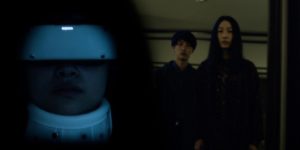
An expert level of environmental storytelling is implemented through the extensive use of photographs. This helps to denote the progression of the characters’ lives without any need for cut scenes, and an incredibly swift and concise character building. With a subtle yet purposeful design, the cinematography of My Mother’s Eyes is an exemplary display of skill. Effectuating an abundance of tight shots, gradual zooms, horizontal rotation, and effective use of POV shots; the camera movement is exceedingly deliberate in its portrayal. Moreover, the atypical use of mirrors to ingeniously alter the dynamic of a static pan keeps characters in frame with minimal movement.
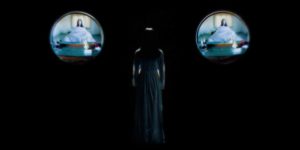
Both gripping and breathtaking, My Mother’s Eyes is a phenomenal journey of discovery that successfully diverges from the expected to bestow a magnificently powerful piece of cinema. With a calculated visual design, amazing performances, a stunning soundtrack, and a thrilling conclusion; My Mother’s Eyes is a tour de force from start to finish. Director Takeshi Kushida has once again shown the astonishing level of skill he is known for in his latest work, undoubtedly providing one of the stand-out films of this year’s Frightfest.

We watched My Mother’s Eyes (2023) at FrightFest 2023

More Film Festival Reviews
Bingo Hell (2021) Film Review – You Win, You Die!
There aren’t a lot of production studios left that are devoted to horror. The two big ones that come to mind for me are Sam Raimi’s Ghosthouse Pictures and Blumhouse….
Annular Eclipse (2021) Film Review – Chinese Cyberpunk Is A Total Triumph
Sometimes you luck into a genre film so good that you feel the need to champion it, to place your hopes in it to reach the hearts and minds of…
Satan War (1979) Film Review – We Have Amityville at Home! [Fantastic Fest]
Satan War is a 1979 Satanic exploitation horror, written and directed by Bart La Rue. Whilst mostly known as a TV actor who had starred in over 20 roles, including…
Bits and Bytes Short Film Reviews – Blood in the Snow Film Festival 2024
BITS and Bytes is a collection of short horror films screening on the third night at Blood in the Snow Film Festival 2024, including several from series that viewers will…
Seagull (2019) Film Review – Time For Extraordinary Revenge
Seagull (2019) is an oddball revenge story centred on family drama, secrets, and spite. After 8 years of eking out survival on a beach, Rose returns home and the full…
The Exorcism of God (2021) Film Review – Tough Questions Require an Exorcist
The exorcism subgenre can be a bit of a double-edged sword. It’s so easy to rely on cheap makeup effects and jump scares to quickly turn a profit, which is…

Hey there, I’m Jim and I’m located in London, UK. I am a Writer and Managing Director here at Grimoire of Horror. A lifelong love of horror and writing has led me down this rabbit hole, allowing me to meet many amazing people and experience some truly original artwork. I specialise in world cinema, manga/graphic novels, and video games but will sometime traverse into the unknown in search of adventure.
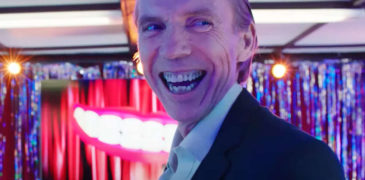
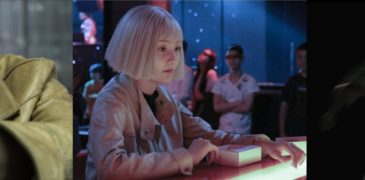
![Satan War (1979) Film Review – We Have Amityville at Home! [Fantastic Fest]](https://www.grimoireofhorror.com/wp-content/uploads/2024/09/Satan-War-cover-365x180.jpg)


